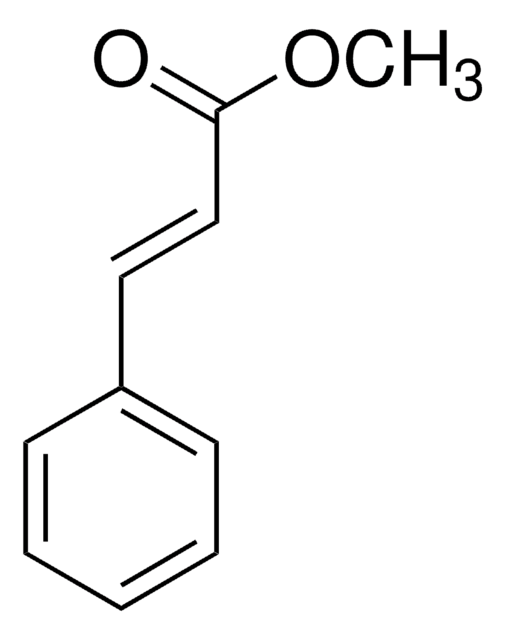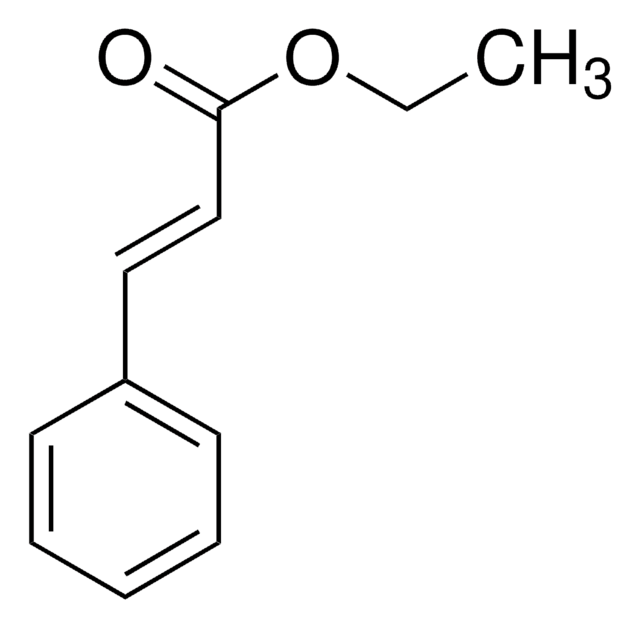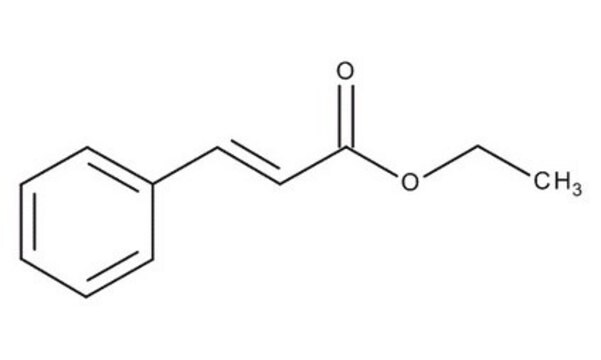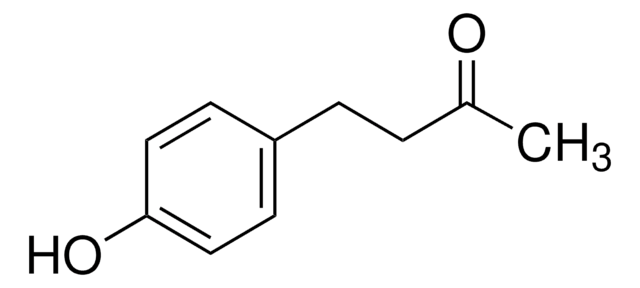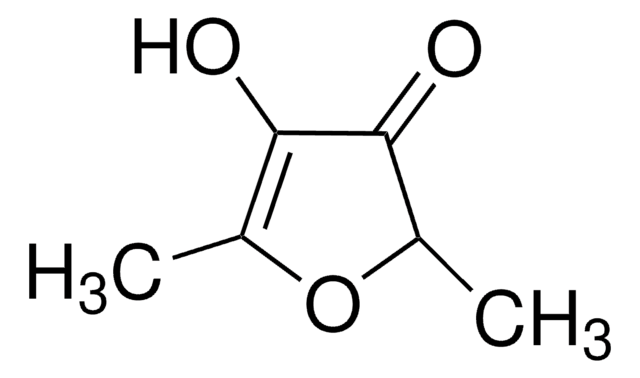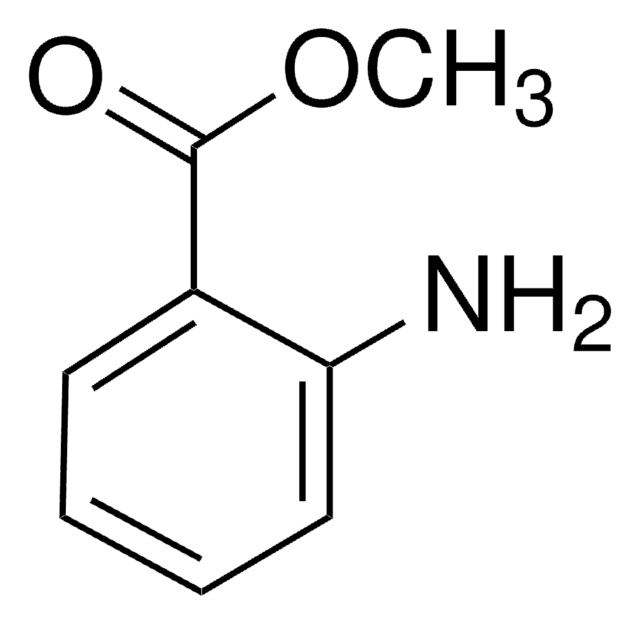W269816
Methyl cinnamate
natural, ≥98%, FCC, FG
Synonym(s):
Cinnamic acid methyl ester, Methyl 3-phenyl acrylate, Methyl 3-phenylprop-2-enoate
About This Item
Fragrance grade
Halal
Kosher
natural
meets purity specifications of JECFA
Recommended Products
grade
FG
Fragrance grade
Halal
Kosher
natural
Quality Level
Agency
follows IFRA guidelines
meets purity specifications of JECFA
reg. compliance
EU Regulation 1223/2009
EU Regulation 1334/2008 & 178/2002
FCC
FDA 21 CFR 172.515
Assay
≥98%
bp
260-262 °C (lit.)
mp
33-38 °C (lit.)
application(s)
flavors and fragrances
Documentation
see Safety & Documentation for available documents
food allergen
no known allergens
fragrance allergen
no known allergens
Organoleptic
balsam; fruity; strawberry
SMILES string
COC(=O)\C=C\c1ccccc1
InChI
1S/C10H10O2/c1-12-10(11)8-7-9-5-3-2-4-6-9/h2-8H,1H3/b8-7+
InChI key
CCRCUPLGCSFEDV-BQYQJAHWSA-N
Looking for similar products? Visit Product Comparison Guide
General description
Application
- Methyl Cinnamate (MC) Alleviates Free Fatty Acids (FFAs) Induced Lipid Accumulation Through the AMPK Pathway in HepG2 Cells.: This research demonstrates that Methyl Cinnamate can reduce lipid accumulation in HepG2 cells by activating the AMPK pathway, suggesting potential therapeutic applications for metabolic disorders (Fu et al., 2024).
Signal Word
Warning
Hazard Statements
Precautionary Statements
Hazard Classifications
Skin Sens. 1
Storage Class Code
11 - Combustible Solids
WGK
WGK 1
Flash Point(F)
235.4 °F - closed cup
Flash Point(C)
113 °C - closed cup
Personal Protective Equipment
Choose from one of the most recent versions:
Already Own This Product?
Find documentation for the products that you have recently purchased in the Document Library.
Customers Also Viewed
Our team of scientists has experience in all areas of research including Life Science, Material Science, Chemical Synthesis, Chromatography, Analytical and many others.
Contact Technical Service